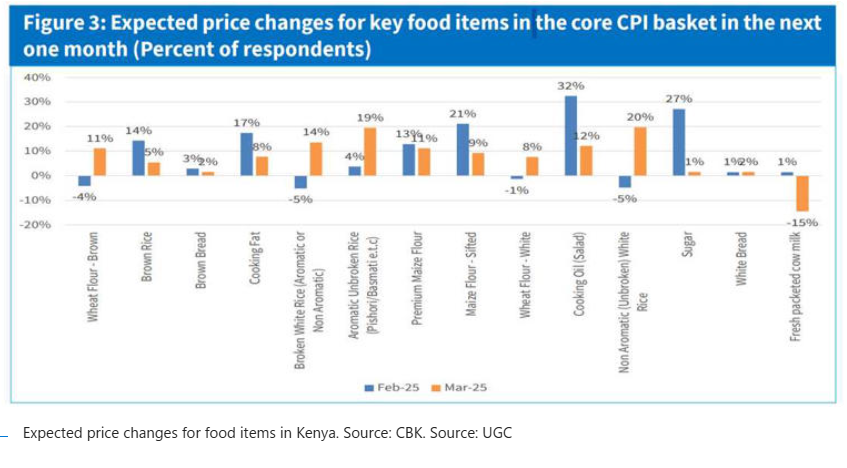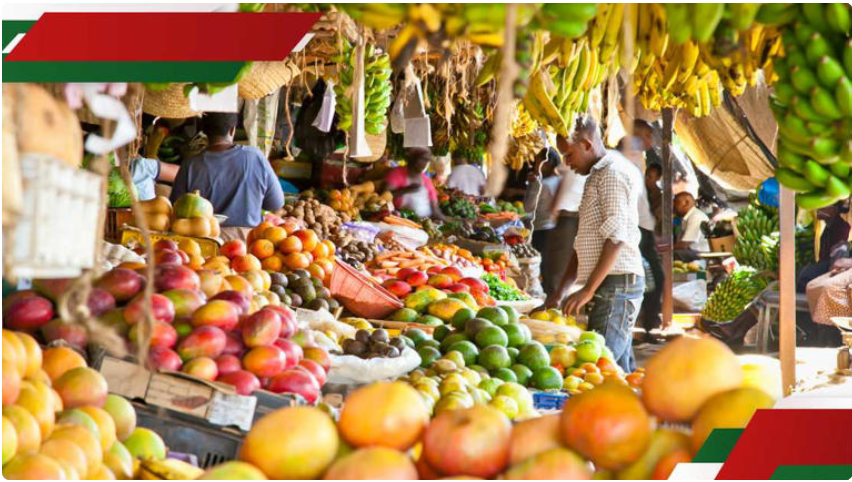By Simba Munyua
Nairobi, Kenya – Kenyans should prepare for a surge in food prices in the coming months, according to the Central Bank of Kenya’s (CBK) latest Agriculture Sector Survey. The March 2025 report, released by the Monetary Policy Committee (MPC), paints a worrying picture for consumers, with key staples like cereals, sugar, cooking fat, and edible oils all expected to become more expensive.
The survey, which polled 312 respondents including farmers, retailers, and wholesalers from across Kenya’s agricultural heartlands, points to seasonal patterns and global market trends as the main drivers behind the anticipated price hikes.
Specifically, the report highlights that April, traditionally a non-harvest month for cereals, will see increased prices for maize, maize flour, green maize, and related products. The ongoing global pressures on sugar and edible oil markets are also predicted to further inflate the cost of these essential items.
Adding to the concern, the report projects a spike in tomato prices, attributing this to supply disruptions caused by the ongoing long rains experienced across various regions of the country.

“Balance of opinion (BOO) on expected price changes shows prices of key food items are expected to increase in April 2025, mainly cereals and select vegetables. Respondents expect prices of maize products and related items to be relatively higher in April 2025 relative to March 2025, mainly reflecting seasonal patterns,” the CBK report states.
Vegetable Prices Offer a Silver Lining
However, it’s not all doom and gloom. The survey offers a glimmer of hope with the expectation that prices of fast-growing vegetables like sukuma wiki (kales), spinach, cabbages, and traditional greens will decline. This anticipated drop is attributed to the favorable rainfall experienced between March and May, leading to increased supply.
Confidence Remains in the Agriculture Sector
Despite the looming inflationary pressures, the CBK data highlights underlying optimism within the agricultural sector. A significant 83% of survey respondents believe that the performance of the sector will either improve or remain stable over the next three months. This confidence is also reflected in a broader economic outlook, which has seen an uptick since January.
Several factors are contributing to this optimism. The survey found that over 60% of farmers reported accessing subsidized fertilizer, which they believe has significantly boosted their output. Respondents also cited increased acreage under cultivation and expectations of improved yields in the coming months, fueled by sustained government support and favorable weather conditions.
While the short-term outlook for food prices may seem daunting, the underlying strength and potential within the Kenyan agricultural sector offer a glimmer of hope for the future. Consumers, however, should prepare for higher grocery bills in the immediate future.









